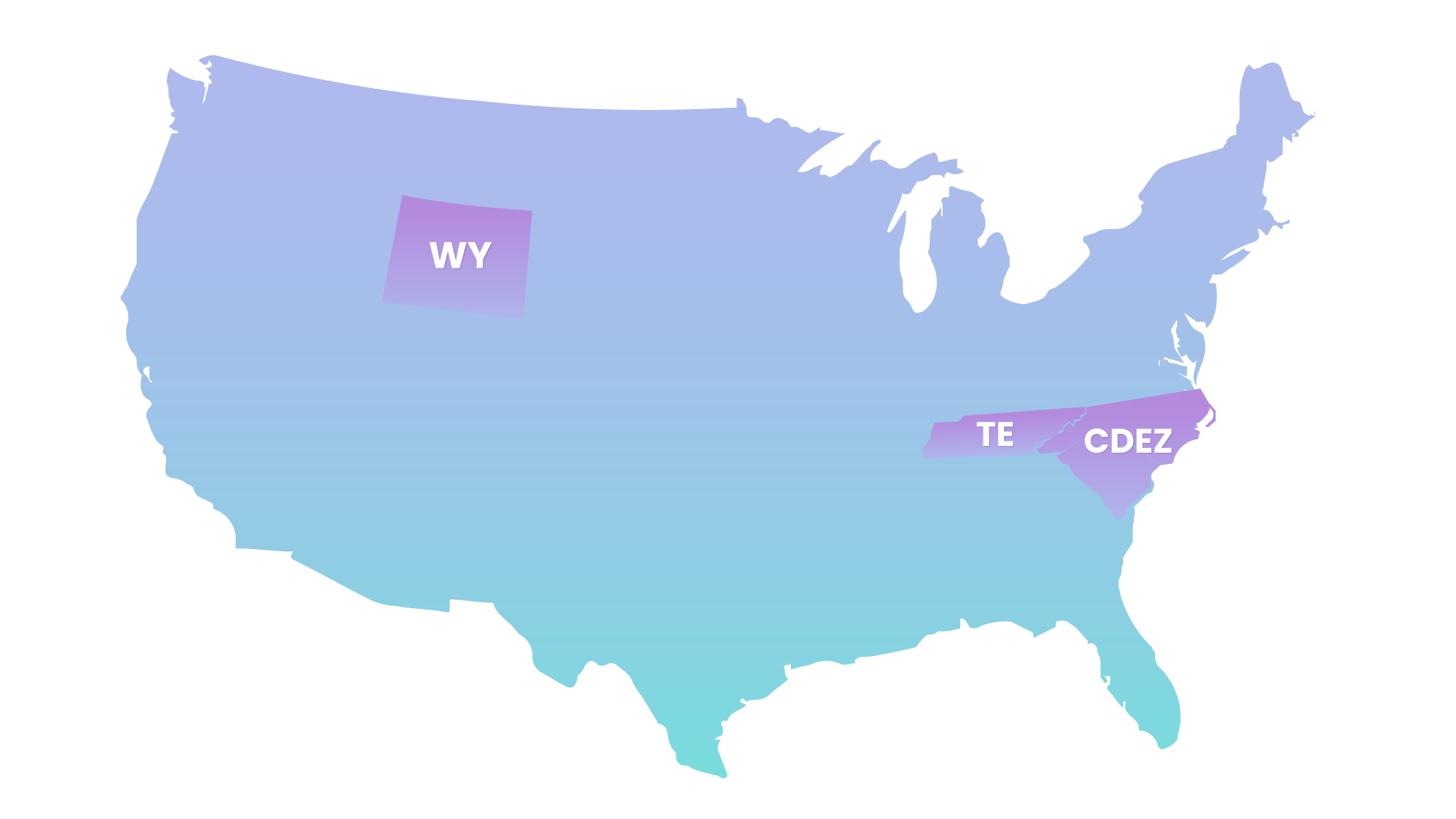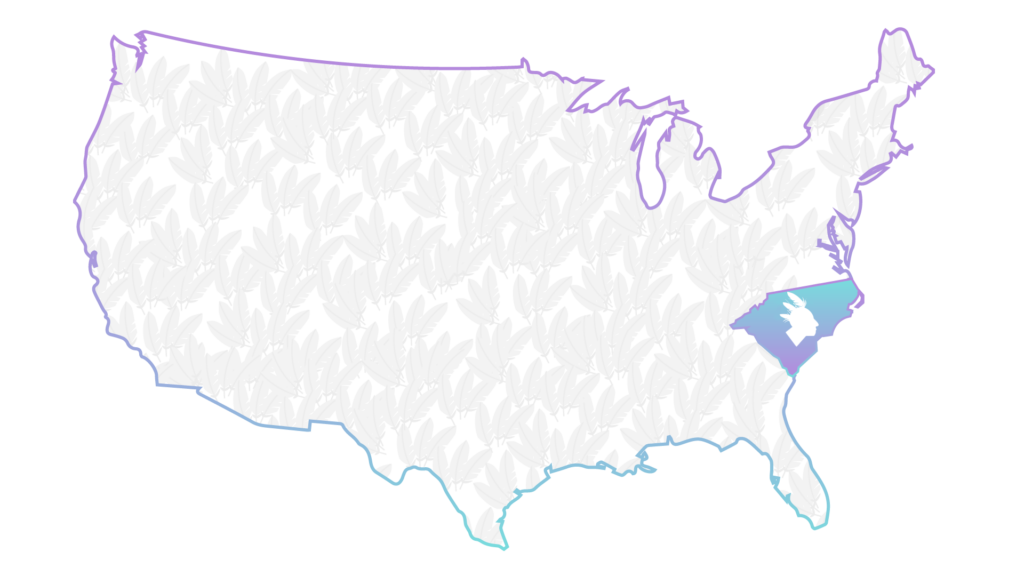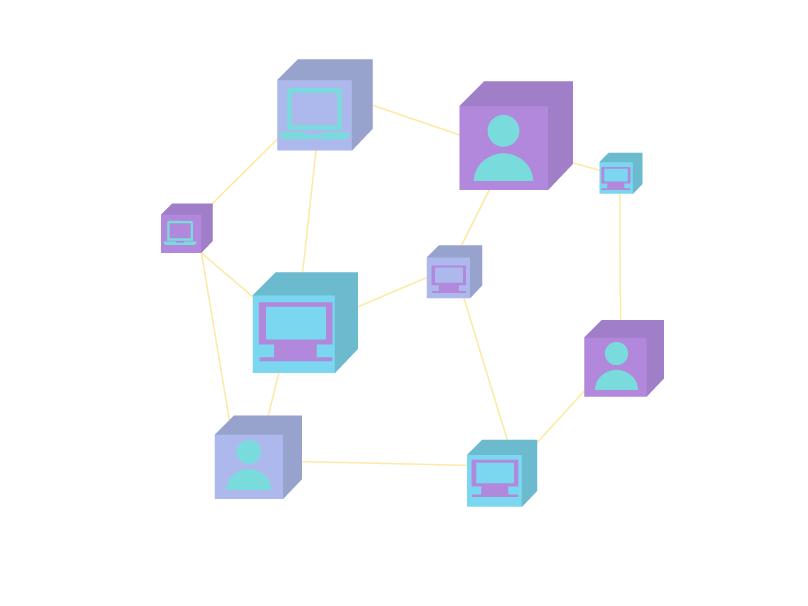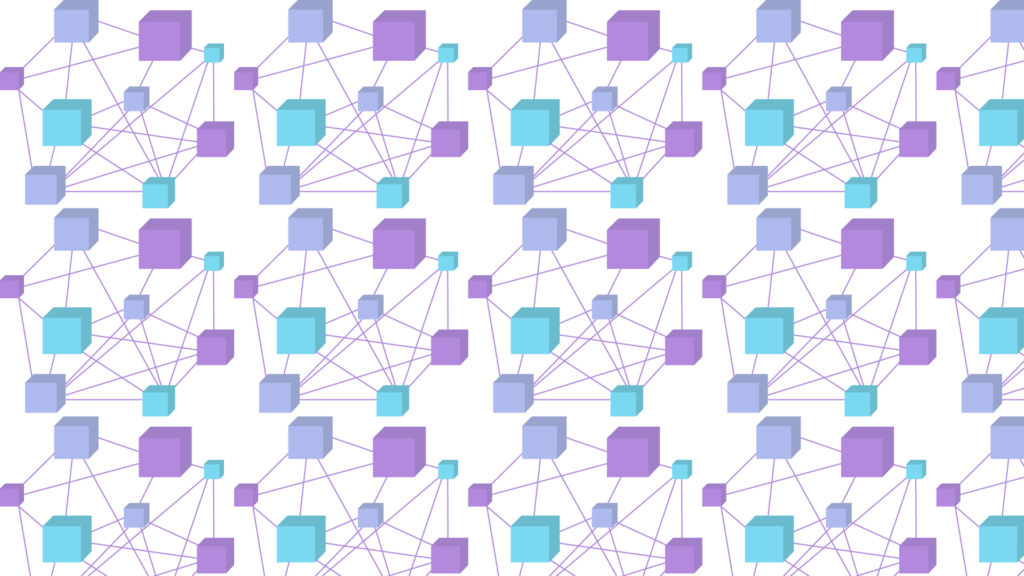CDEZ DAO REGULATION
- The Catawba Digital Economic Zone is one of the few places globally and in the United States with a Decentralized Autonomous Organizations (DAO) Regulation.
- This regulation has the unique feature of allowing DAOs to incorporate as an Unincorporated Nonprofit Association (UNA) or Limited Liability Company (LLC).

What are DAOs for the CDEZ?
the Zone Authority of the CDEZ, we saw the need to allow for the registration of Decentralized Autonomous Organizations, to serve those internet-formed groups, and teams with organizational structures resembling more a network than a traditional corporate pyramid.
A CDEZ DAO legal wrapper is ideal for decentralized organizations that use smart contracts to conduct activities or that use tokens to vote, incentivize and pay members.
CDEZ DAOs lawfully allow for membership shares, voting rights, and contributions.
Our DAO regulations take the best from DAO frameworks of Wyoming, Tennessee, Idaho and New Jersey.
Types of Catawba DAOS
DAO LLC
Attractive for for-profit and investments DAOs that want to have standard rules for interacting with the traditional financial world.
DAO UNA
Attractive option for certain types of DAOS that may wish to generate profit, but not necessarily be interested in a pro-rata distribution of said profits.
Definitions
LLC
A traditional limited liability company (LLC) is a legal entity distinct from its individual members or owners. It is a creature of state law, meaning when you form an LLC, you form it under the laws of a particular state. (Tribes have the same legal status of a state according to the US Constitution).
There are many advantages to structuring a company as an LLC— Limiting personal liability, avoiding double taxation, having pass-through deductiond and less administrative ureaucracy than corporations.
UNA
UNAs “are analogous to partnerships, and yet not partnerships; analogous to corporations; and yet not corporations; analogous to joint tenancies, and yet not joint tenancies; analogous to mutual agencies; and yet not mutual agencies.” Texas Court in 1992.
The figure of the UNA was initially designed by the Uniform Law Commission (ULC) and has been adapted to fit into the original LLC structure for DAOs adopted and amended by Wyoming, with additional requirements unique to its structure and applicable provisions. Additionally, the regulation was complemented by the Tennessee DAO Regulation, particularly regarding the definition of smart contracts.
Incorporating
Any person may form a DAO LLC by signing and delivering one original and one exact or conformed copy of DAO Governing Principles to the Zone Authority to the email contact@zoneauthority.io
CDEZ DAO Regulation Background
- Wyoming DAO Supplement served as the primary basis for CDEZ’s DAO regulation, but with several improvements.
- The Tennessee DAO Regulation was also used for the CDEZs’ DAO Regulation regulation

Key Sources Considered
The following documents were the main sources considered when drafting the Catawba Zone’s DAO Regulation:
Overview of the CDEZ DAO Regulation and it's most relevant topics
DAOs can be incorporated either as an LLC or as a UNA, providing greater flexibility for different organizational needs.
The certificate of organization, governing principles, smart contracts, or operating agreement provide the rules and regulations guiding the DAO. However, members are allowed to agree differently, offering flexibility and autonomy.
The Zone Authority Commission controls the application and issuance of DIDs for the DAO's management smart contracts.
The definition of "smart contract" is clear, and it is based on the Tennessee DAO Law.
The regulation allows members to agree on an on-chain alternative dispute resolution mechanism.
UNAs can establish their own policies on payments and compensations for potential staking and risks associated with staking a token used for DAO governance.
DAO LLCs, Taxes and Legal Matters
How did the Zone include the work of A16z in the DAO Regulation?
Miles Jennings and David Kerr published with a16z a series on Legal Framework for DAOs, where they proposed a novel approach for DAOs to be capable of registering as Unincorporated Nonprofit Associations (“UNA”) in states that recognize this entity form.
Through their papers, they drew attention to the potential of UNAs and their unique characteristics that are well suited for DAOs, including simple formation and flexible governance requirements capable of being satisfied and scaled without jeopardizing any of the innovative benefits that DAOs make possible, as well as being able to own property and open bank accounts.
For the CDEZ DAO Regulation, the work presented by a16z was crucial for the inclusion of the UNA entity form as an option for incorporation in the CDEZ. Considering that distribution of profit is prohibited for UNAs, a provision was included to clarify that, pursuant to the law, and considering that DAO UNAs may determine how to compensate its members, payments and compensations for potential staking and the assumption of risk regarding staking of a governance token shall not be construed as paying a dividend or making a distribution

Comparison to Wyoming DAO Regulation
The CDEZ DAO Regulation draws heavily from Wyoming’s DAO Supplement, especially the 2022 amendment. However, there are significant improvements and adaptations.
While both regulations allow DAOs to form as an LLC, the CDEZ further includes the option for DAOs to incorporate as an UNA.
The CDEZ DAO Regulation has been adapted to align with the institutions and legislations of the Green Earth Zone.
Wyoming allows for the modification of smart contracts in DAOs, a feature not explicitly addressed in the CDEZ regulation.
While Wyoming's DAO Supplement distinguishes between member-managed and algorithmically-managed DAOs, the CDEZ does not make this distinction.
The Wyoming amendment applies a pro-rata rule to all DAOs, not just member-managed ones. The CDEZ regulation does not explicitly state its stance on voting rights.
Wyoming leaves the definition of a quorum to the DAO's articles of organization or operating agreement. Catawba, however, defines, "majority of the members" as more than fifty percent (50%) of the membership interests eligible to participate in a vote or any membership interests according to each DAO's governing principles or operating agreement.
While the Wyoming amendment requires the inclusion of dispute resolution mechanisms in the articles of organization or smart contracts, the CDEZ regulation permits on-chain alternative dispute resolution mechanisms.
Unlike Wyoming that meets every 2 years to vote on new regulations, Catawba Zone regulators meet every 2 weeks or less.
Summary of the CDEZ DAO Regulation by Sections
Clarifies key terms associated with DAOs and the digital landscape they operate in, including: Blockchain, DAO UNA, Digital asset, DAO LLC, and Smart contract.
This section states that the regulation is applicable to both DAO LLCs and DAO UNAs, ensuring their adherence to the Zone Civil Code. It specifies that pre-existing laws for traditional LLCs and unincorporated nonprofit associations will remain unchanged unless they are specifically labeled as DAOs.
In this section, the criteria for an organization to be considered a DAO are defined. It stipulates that the organization’s official documents must explicitly declare its status as a DAO and include details about how the DAO operates and any restrictions on transfer of ownership interests. The registered name for a DAO must include “DAO LLC” or “DAO UNA” to reflect its status.
Section 105 outlines the steps to create a DAO, be it an LLC or a UNA. This includes procuring a digital identifier for each member and providing an identifier for the smart contract that manages the DAO. DAOs are also required to submit annual updates to the Zone Authority Commission about any changes to their reported information. Any non-compliance, fraudulent, or deliberately misleading behavior could lead to penalties, dissolution of the DAO, or loss of limited liability protection.
Section 106 outlines the requirements for the certificate of organization for DAO LLCs or the governing principles for DAO UNAs. It includes essential requirements like the inclusion of a statement that declares the organization’s status as a DAO and a publicly available identifier of any smart contract directly used to manage the DAO. This section further details the key elements that should be addressed in the certificate of organization or governing principles, like member relations, activities of the DAO, amendment processes, rights of members, withdrawal of membership, and dispute resolution methods, among others.
This section clarifies the circumstances under which a DAO’s certificate of organization or governing principles should be amended. It should be amended when there’s a change in the name of the DAO, when there is an error in the existing document, when the DAO’s smart contracts have been updated, or when the publicly available identifier has changed. Moreover, the members of the DAO must be notified about any updates or changes to the smart contract.
Section 108 allows the use of an operating agreement to supplement the certificate of organization, governing principles, or smart contract if they do not provide for a matter described in Section 106. This operating agreement could also be a smart contract.
This section states that the management of a DAO is vested in its members or the members along with any applicable smart contracts. It also outlines that all smart contracts utilized by a DAO should be capable of being updated or modified. Meetings may involve asynchronous participation, allowing communications and votes to be held over an extended period of time.
In Section 110, it’s specified that members of a DAO are subject to the implied contractual covenant of good faith and fair dealing, unless the certificate of organization, governing principles, or operating agreement state otherwise.
This section outlines the calculation of membership interests in a DAO and the voting rights of members. This could either be based on the ratio of a member’s contribution of digital assets to the total digital assets contributed to the DAO, or, if all members have not contributed digital assets, each member shall possess one membership interest and be entitled to one vote.
According to Section 112, members and dissociated members have no separate right to inspect or copy records of a DAO if the information is available on an open blockchain. The DAO has no obligation to furnish any information about its activities, financial condition, or other circumstances.
Section 113 details the procedures for member withdrawal from a DAO. Withdrawal terms are set forth in the certificate of organization, governing principles, smart contracts, or operating agreement. Upon withdrawal, a member forfeits all membership interests, unless stated otherwise.
Section 114 details the circumstances under which a DAO can be dissolved, such as the expiration of the organization’s duration, the lack of approved proposals or actions for a year, or if the DAO no longer serves a lawful purpose.
In Section 115, it’s stated that the certificate of organization, governing principles, and operating agreement are effective as statements of authority. In case of a conflict, the certificate of organization or governing principles, and smart contract will preempt any conflicting provisions.
Section 116 states that the Zone Secretary will not issue a certificate of authority for a foreign decentralized autonomous organization.
Section 117 specifies that for DAO UNAs, distributions of profit are prohibited. However, the DAO UNA’s governing principles may outline how it compensates or makes payments to its members, provided they comply with certain sections of the Zone Civil Code. It further notes that payments and compensations for potential staking and risk assumption regarding the staking of a token held in relation to the DAO UNA governance will not be construed as paying a dividend or making a distribution.






